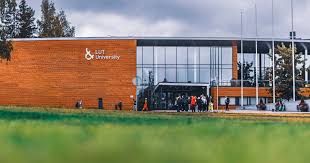The future of transportation systems is electric – cars, busses, trucks, trains, marine vessels, and ultimately, aircrafts will be powered by electricity. The Master’s Programme in Electric Transportation Systems equips you with the knowledge and skills you need to excel in this exciting field.
In this programme, you will gain a deep understanding of electric transportation systems as a whole, including how to apply relevant power electronics and electric drive technology solutions to the development of future zero-emission transportation systems.
You will also learn to compare different energy storage options and choose suitable ones for different applications. You will learn to analyse the role and influence of electric vehicles in the energy system.
You will become familiar with the power and energy transmission of electric vehicles – from green energy production to the drivetrain. With the programme’s emphasis on information technologies related to transportation systems, you will even learn to develop flexible charging systems.
This programme gives an overview of the technology and business in electric transportation systems. It also focuses on key technologies and skills related to electric transportation, such as electro-mechanical drive trains, power electronics, battery technology and related information technology. Also indirect electrification methods and e-fuel technologies are considered, and environmental impacts of different technology solutions are analysed.
You will receive a Master's degree in electrical engineering with a focus on electric transportation systems. With the expertise from this programme, you will be able to work in various expert positions in the electric transportation sector and also beyond it. Due to the emphasis on power electronics and electrical drives, you will also be fully capable to work in these industrial fields.
The Master's Programme in Electrical Transportation Systems suits applicants with a BSc degree in electrical engineering and those already in full-time work because it mainly utilises blended and hybrid teaching. Contact teaching will mainly be arranged on the Lahti campus on individual days at the end of the week.

